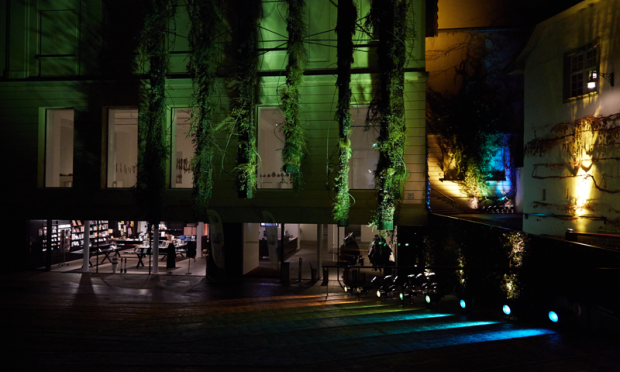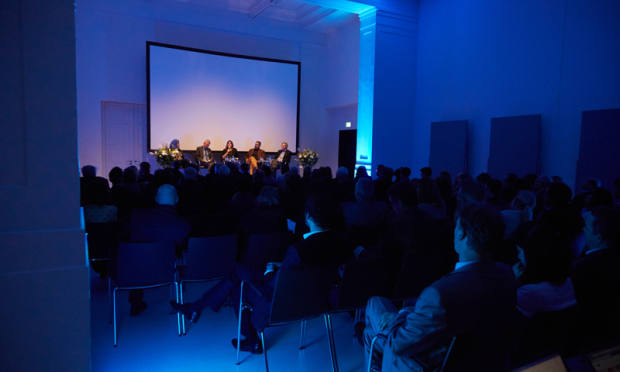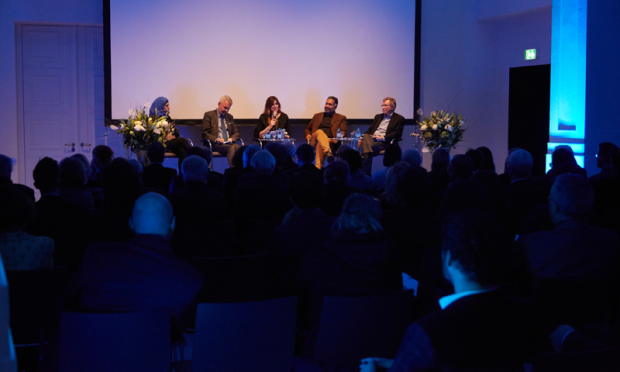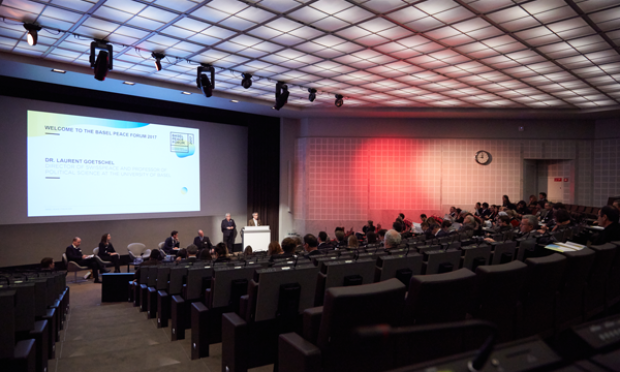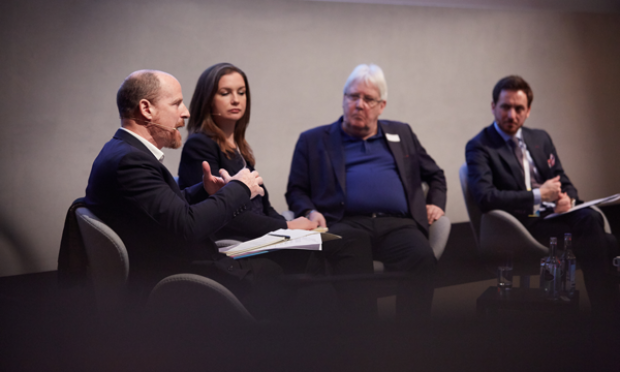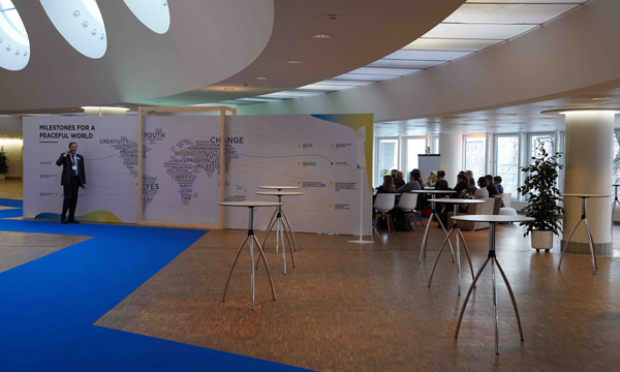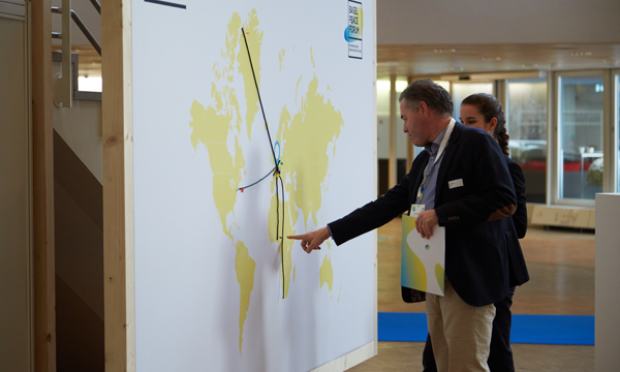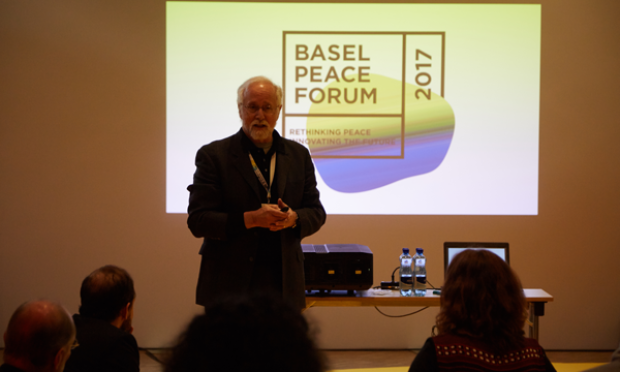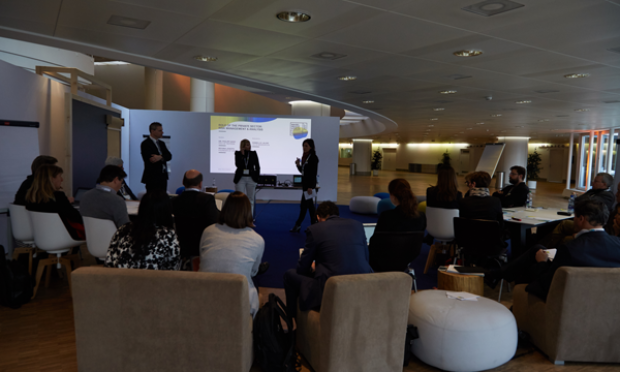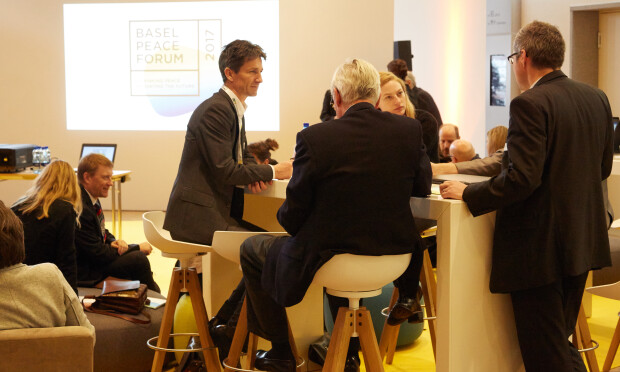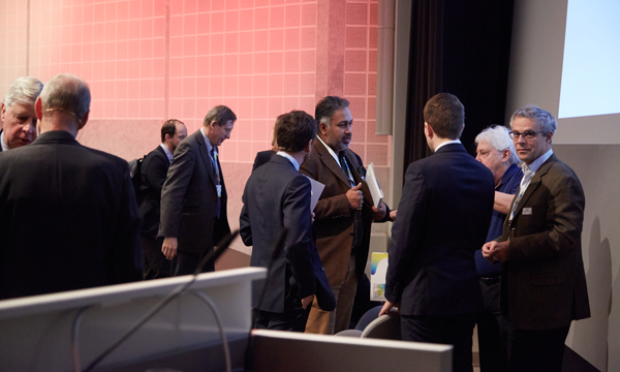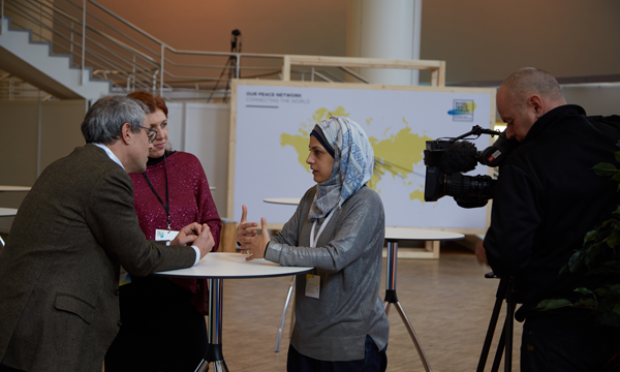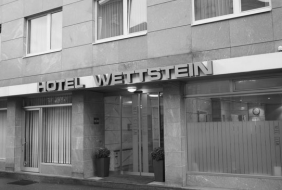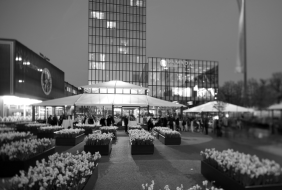The Basel Peace Forum 2017 intended to inspire new and unconventional ideas for peacebuilding. To ensure that this happens, carefully selected leading personalities and decision-makers from business, diplomacy, academia, and civil society were invited.
Rethinking peace – Innovating the future
Impressions
Photos by Gabriel Hill
Videos
Harriet Lamb, CEO of International Alert, Stefanie Bailer, professor of political science at the University of Basel and Jürg Utzinger, director of the Swiss Tropical and Public Health Institute, accepted to share their thoughts on why they chose to attend the Basel Peace Forum.
Critical Reflections 1
Download Critical Reflections "New technologies to prevent conflict and build peace"
Overview
This workshop discussed ways in which new technologies, in particular Artificial Intelligence (AI) and virtual online platforms, can enhance global efforts to prevent conflicts and build peace. Two core ideas emerged from expert inputs and ensuing discussion among participants. First, development and research around AI needs to be refocused to how the technology can promote peace, rather than wage war. Second, the establishment of virtual platforms building trust through social and
commercial interactions should be explored in countries emerging from conflict.
Recital
The workshop benefitted from the inputs of two renowned experts, Ronald C. Arkin and Hanne Melin Olbe. Mr. Arkin is a professor for robotics at the Georgia Institute of Technology in the United States. He has been an outspoken advocate for the need to explore the potential of AI to make warfare more ethical, for example by allowing for a better distinction between combatants and civilians. In the workshop, he outlined the current state of the discussion about the use of AI in warfare and proposed a few avenues for reflection for how the technology can be applied in peace promotion. Ms. Melin Olbe is director global public policy at eBay Inc. She has worked on new models of commerce, also called ‘commerce 3.0’, in particular virtual commerce platforms, allowing people to do trade via the Internet irrespective of distance and of physical infrastructure. She presented ideas for how such virtual commerce platforms can benefit peacebuilding, notably by promoting trade and connecting people. The workshop was moderated by Ursula König, mediator and consultant with Ximpulse in Switzerland.
Core idea 1: Taking AI from war to peace
Artificial Intelligence has been used for military purposes, most controversially to develop lethal autonomous weapons. Human Rights Watch and others argue that the development and use of fully autonomous weapons, which they call ‘killer robots’, should be banned. Others, including Mr. Arkin, to the contrary make the case for stepping up research on military uses of AI in view of realizing the potential of making war more ethical and more in line with International Humanitarian Law. What is uncontested is that research on military uses of AI is quite advanced, while knowledge of AI in peacebuilding is limited. There was consensus that this needs to change. Therefore, the first core idea of the workshop is to invest significant non-military resources to study how AI can benefit peacebuilding. One avenue to be explored is how AI could enhance the analytical capacity of peacebuilders, for example by dynamically analyzing social network data or drone imagery in order to recognize potential conflicts early on, monitor developments in a conflict contexts and assess the effectiveness of international responses. Another possibility is using AI for training purposes, for example by simulating conflict situations and giving feedback on responses by international mediators and peacebuilders.
Critical Reflection: Broadly speaking, AI serves two main purposes: either to help humans better perform a given function or to substitute humans in performing a given function. The controversy around the use of AI in warfare precisely stems from (potential) developments of the technology from the latter to the former. In peacebuilding, however, AI substituting human activity does not seems to be feasible, given the centrality of complex social interactions and political analysis. Reflection should therefore concentrate on how AI can support peacebuilding work. Having said this, ethical questions are nonetheless highly relevant, especially as the analytical capacities generated by AI to support peacebuilding could be misused for military purposes. To cover the different aspects of the topic, swisspeace suggests launching a large-scale multidisciplinary research project involving roboticists, engineers, mathematicians, lawyers, ethicists, political scientists, forecasters as well as peacebuilding practitioners in a joint endeavor to study the potential use of AI to prevent conflict and build peace.
Core idea 2: Peacebuilding 3.0
Platform-enabled online commerce, exemplified by companies like eBay, Etsy, Amazon, Alibaba, etc., has seen rapid growth in recent years, both in developed and in developing countries. Ms. Melin Olbe made the case that this type of business has great potential also in fragile contexts. On the one hand, the online commerce platform, which supplements for, inter alia, information asymmetries and distrust in formal institutions, enables small enterprises to extend retail businesses across large distances at low cost and without investing in physical locations in distant markets, has the potential of boosting economic growth in countries emerging from conflict. On the other hand, online commerce builds trust among individuals engaging in it and can therefore contribute to reconciliation. However, rather than the specific business idea of online commerce, workshop participants thought the general model of online-based virtual platforms was promising in the context of peacebuilding. The second core idea of the workshop is therefore to explore how
virtual platforms foster social and commercial interactions, which, in turn, promote trust between individuals in different geographic locations and belonging to different groups in peacebuilding contexts.
Critical Reflection: Online commerce has potential in fragile contexts, for example by facilitating the market entry of small and micro-sized companies without costly investments. However, online commerce still requires know-how, global payment and logistic services, and Internet connectivity infrastructure, which begs the question of how feasible it is to promote economic growth in fragile contexts. Also problematic is the situation where small and micro-sized companies are empowered, through Western country-based platforms, to reach consumers worldwide, not the least Western countries, but are then prevented or discouraged from efficiently serving consumers in such countries because of low thresholds for customs administration and duties or local sales taxes that affect remote small companies disproportionately as they do not get any value from physical presence or impose any burdens on local community infrastructure. To maximize its contribution to peacebuilding, the basic features of online commerce – virtual networking platforms favoring social interactions – should be preserved and recalibrated for public gain. In particular, the potential of virtual platforms to promote trust between individuals using the platforms, but also between individuals and the platform provider should be harnessed. To this end, swisspeace suggests initiating pilot projects in which virtual networking platforms are set up in partnership with local authorities, the private sector and NGOs as a way to connect people in peacebuilding contexts. These platforms allow people to address a specific need – for example farmers exchanging on use of different technologies – but also build trust between participants and between participants and the convening authorities and organizations. The results of the pilot projects should be critically evaluated to learn for the future.
Critical Reflections 2
Download Critical Reflection "Exploring the Health-Peace Nexus"
Overview
Health professionals have entertained a long-lasting engagement with war, not least evidenced by the foundation of the International Committee of the Red Cross in 1863. Much less prominent, however, has been the health professionals’ relationship with peace. Yet, it is conceivable that personnel in the health sector is similarly well placed to actively support peace as it is to counter the harm and pain of war. Attending to the health-peace nexus at the intersection of private, public and not-for-profit actors, this workshop explored potential propositions in order to discern innovative ways to build new and mutually beneficial bridges between health and peace.
Recital
The workshop was kicked off by Dr. Jutta Reinhard-Rupp, Head of the Global Health Institute at Merck, who gave a presentation on her company’s work on neglected tropical diseases in the global south. The speaker conjectured that violence and war disrupt health systems, which is not only problematic in terms of the resulting undersupply of health services to the affected population, but also because of the probable enhancement of inequalities, which might feed into grievances and antagonisms. Conversely, Dr. Reinhard-Rupp suggested that peace and well-being positively affect health systems, thereby contributing to conflict prevention, for instance, through underscoring popular respect for human rights. Her input was complemented by a subsequent presentation provided by Dr. Jürg Utzinger, Professor of epidemiology at the University of Basel and director of the Swiss Tropical and Public Health Institute, who attested that socio-political unrest, armed conflict and war that occurred in Côte d’Ivoire from 2002-2010 weakened the country’s health infrastructure. The speaker also pointed out that research partnerships in the health sector, forged long before the violent conflict, had created common principles, values and trust that survived the devastating war. The workshop was moderated by Dominique Reber, Partner at Hirzel.Neef.Schmid.Counselors.
Reactions
Initially, workshop participants debated about whether there is association or causation between health and peace. Evidence for the proposition that war negatively affects health was quickly found with southern Thailand given as a prominent example. That led one workshop participant to poignantly state that ‘war is a public health disaster’. However, the evidence that health contributes to peace remained much more spurious throughout the discussion. Hence, different opinions have been expressed on this part of the equation. In order to cut this Gordian knot, one workshop participant made a case for not understanding ‘health’ in conceptual terms, but as understanding it to be synonymous with ‘health professionals’. This adaptation opened up different avenues as regards the potential of instrumentalizing physicians, nurses, midwives and psychologists in support of peacebuilding. It is in this train of thought that it was highlighted that the health sector—through its personnel—was particularly well placed to promote and uphold human rights and human dignity in support of peacebuilding due to the long-standing and universal value of medical ethics. It was thus proposed that the medical workers’ affinity to respecting ethical standards could constitute an entry point into setting broader ethical standards in order to mitigate violent conflict.
Coming from a slightly different vantage point, some workshop participants suggested that, while it might not be health per se that stimulates or counters large-scale violence, an unequal distribution of, and access to, health services could certainly constitute a causal element. With the example of Syrian refugees on Lebanese territory having better access to health services as compared to their local counterparts, it was argued that such inequality might enhance tensions that can lead into a spiral of violence between the communities concerned. More generally, it was proposed that flagrant inequalities in access to health could exacerbate conflict. Finally, one workshop participant suggested that the relationship between health and peace becomes clearer, if not confining health to a narrow concept of absence of illness, but rather embracing a more holistic view, including mental health, access to nutrition and water. While this point is well-taken, it was also felt that this might constitute an undue and unhelpful stretching of the concept of health.
Reflections
Reflecting on the debate among workshop participants about the potential linkages between health and peace, four issues emerged:
First, one aspect that might constitute a potential starting point for a renewed reflection on, and engagement with, the health-peace nexus concerns the health sector’s explicit roots in, and application of, strict ethical standards. As these medical ethics are fundamentally based on a non-negotiable respect for human life, the equality of human lives as well as dignity, their evolution and exercise could provide for a novel pathway to beneficially tie health and peace. While the peace-building community has subscribed to a ‘do no harm’ approach, there could well be more to be learned from medical ethics when engaging in peacebuilding endeavors.
Second, in addition to the aforementioned point, the medical field provides food for thought to the international peacebuilding community when it comes to the thorough testing and validation of potential remedies among a treatment group before applying such medication across an entire population. Could we equally test new approaches in peacebuilding first in a very limited group of sentinel communities before expanding the approach to the wider community or country? This incremental and fact-based approach could possibly be inspirational to (certain segments of) peacebuilders. That said, it is obvious that this condition cannot be fulfilled by peacebuilders in its strictest sense, as peacebuilding does not focus on the individual, but entire societies as their units of engagement. Nonetheless, the diagnostic approach taken by health professionals and their seeking of informed consent prior to providing treatment could constitute an inspiring starting point for peacebuilders. Third, existing accountability mechanisms in the health sector could act as a path-breaker to rethink the peacebuilders’ contract with the communities they engage in. It should be noted, however, that accountability is ambiguous in the international peacebuilding space—particularly in the presence of a plethora of actors and in the context of fragile and conflict-affected settings. Enhancing transparency and accountability at the part of the international peacebuilding community could constitute a healthy step forward.
Fourth and finally, when it comes to exploring the potential ways by which the health sector could contribute to peacebuilding in innovative ways, it might be valuable to identify the ‘cracks in the wall’ (cf. Salvatore Pedulla during the panel discussion at the Forum) that, if enlarged, allow bringing down the wall of war. One such ‘crack in the wall’ could be found in the circumstance that health services generally provide a space for ‘civilization’, dignity and optimism. Eventually, peacebuilders could seek to enlarge such cracks and build upon these emerging spaces in order to provide a more fertile ground for a more respectful coexistence among (formerly) antagonistic parties.
Critical Reflections 3
Download Critical Reflections "The role of the private sector"
Overview
The workshop dealt with two main topics. First, the use of open source data and artificial and human intelligence for understanding and tracking environmental, social, and governance (ESG) risks for businesses. Second, the improvement of forecasting quality around war and peace by leveraging new insights from innovative information design, decision science and the “wisdom of crowds”.
Recital
Both speakers gave insightful examples from their respective fields of expertise. Dr. Philipp Aeby, CEO of RepRisk gave a detailed account of how his company’s approach helps business investors to understand ESG risks to which every company is exposed in any given context. To this end, open source information is collected through specific computer algorithms and then combined with human intelligence from the company’s analysts. Potential investors are thus enabled to base their investment decisions on a transparent data set of a company’s performance related to ESG risks, their historic track record therein, and allows for comparisons with other companies. Dr. Aeby argued that in business, transparency is the “new normal” and leads to accountability. And if businesses become more accountable, the world gets a better place. In her input on “Predicting war…and Peace?” Regina Joseph, founder of Sibylink, argued that today’s quality of forecasting geopolitical conflict is sub-optimal because it lacks quantitative specificity and post-mortem evaluation. Extensive forecasting research has shown that due to various factors including reputational risk aversion and cognitive bias, forecasts by context experts, or “hedgehogs,” are less accurate than those of certain types of generalists, or “foxes.” Furthermore, deficits in comprehension lead to poor decision-making as human beings struggle with the four V’s of digital information – the volume, variety, velocity, and veracity of today’s information. Improving forecasting of geopolitical conflict would allow putting in place better strategies to build peace. An approach that combines four key components is best placed to achieve this: metacognitive training to recognize own bias; transparency through technical platforms; teaming the wisdom of the crowds; and information design innovation using a multi-disciplinary approach.
Core theme 1: using open source data and transparency to increase positive role of businesses in fragile and conflict affected contexts
Businesses play a crucial role in shaping trajectories of conflict contexts. This is undisputed. But can transparency foster peace in conflict prone countries? Today an enormous amount of data is collected and processed to support investors to make better investment decisions. But these investors focus largely on compliance and ensuring the respect of their investment principles, i.e. ensuring they are not invested in companies that are accused of regularly breaching labor or human rights, employing child labor, cutting down rainforest, etc. While this is good in itself, peacebuilding actors appreciate going beyond “compliance”, a concept they feel often uncomfortable with, and instead aiming for “accountability” of private sector actors.
How can open source intelligence be of help for leveraging business’ potential for peace and stabilization? Taking the RepRisk approach and dataset as the starting point, four avenues emerge from a peacebuilding perspective: first, reputational dimension of the data can be used for active encouragement of good behavior and investment in conflict affected contexts by businesses. A “good business award” could use the dataset for identifying companies that score well regarding ESG risks or have made considerable improvements over time. Such an approach could also be used to incentivize investment in difficult contexts, despite the risks. Second, it could be explored if another risk category – risk of contributing to conflict – could be added to complement the current ESG risk categories. It would require some conceptual work to translate “conflict sensitivity” - the gold standard for good engagement of development and peace actors in conflict prone areas – into algorithms that track businesses’ performance in this regard. But the obstacles for achieving this do not seem huge. Third, the sustainable development goals (SDGs) offer themselves to be a bridge between peace and companies. The UN global compact strongly refers to the SDGs, and at the same time it is already influencing the reporting by companies. If we could therefore create a similar data collection and analysis instrument like RepRisk for the SDGs, and not exclusively on ESG Risks, then the peace, development, and business worlds would move much closer together. Lastly, on a more critical note, the chronic unreliability of “data” or “facts” coming from conflict affected contexts merits close attention. Little information can be called neutral. People do not agree about “facts”, this is the very essence of what conflict means. And the “sender” of information oftentimes has hidden political agenda in mind when releasing facts, news, and data. This means that the factuality and veracity of information must be thoroughly assessed in any such system.
Core theme 2: how to bring the local level and local actors into the picture
Better forecasting of geopolitical conflict allows for better policy choices to address it. This is a timely connection to underline, especially in the light of the current focus on improving the international ability and structures to prevent violent conflict. At the same time, forecasting suffers from similar limitations like early warning, especially the weak link to early action. In other words, the lack of better policy choices for addressing conflict does not so much stem from a lack of accurate information, but a political inertia in an interconnected world. More accurate forecasting therefore has the biggest potential to do good at levels where inertia is not an option. For example at the local level, where national actors are highly motivated to foster positive change. Also, international donors usually develop context scenarios on which they base programming and funding decisions for the next strategy phase. Better forecasts could be expected to yield direct benefits for these actors and support them to find better solutions. The following areas could be considered: First, to embed better forecasting thinking in education, to become more aware of own bias and how to deal with information design innovation. Second, efforts should be undertaken to make more data available for people affected by conflict so that they can have a stronger say in finding solutions, and to strengthen accountability of all actors. Information such as the RepRisk dataset could be of value in this regard. Third, donors in conflict context should explore the specific value and use of better forecasting approaches for their strategic and scenario planning. These processes are currently deeply rooted in context “expertism”. A specific pilot project with a multidisciplinary approach should be initiated, focusing on informing operations on the ground and increasing actors’ agility and strategic focus.
Program
January 15, 2017
Opening of the Basel Peace Forum, with Jakob Kellenberger, Guy Morin and Heidi Grau
Panel Debate: Brave New World? with Marwa Al-Sabouni, Faheem Ahamed, Pekka Haavisto, Per Heggenes and Janine di Giovanni
Networking dinner
January 16, 2017
Registration & coffee
Panel Debate: Mediating against the odds with Günther Bächler, Mary Fitzgerald, Patrick Gavigan, Salvatore Pedulla and Martin Griffiths
Break
Workshop session 1
Lunch
Workshop session 2
Conclusion: presentation of results
Gallery walk & goodbye coffee
All Speakers
-
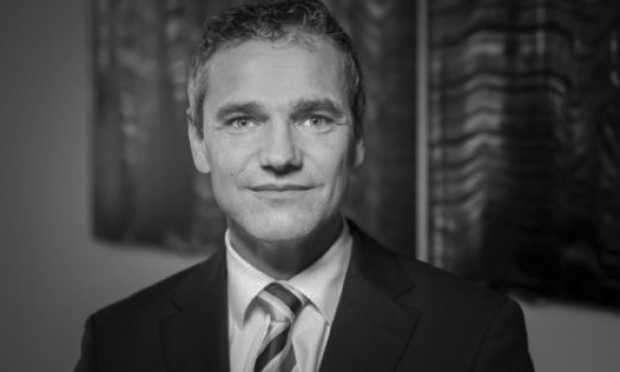 reprisk.com
reprisk.comPhilipp Aeby
The CEO of RepRisk manages the leading business intelligence provider specialized in risk analytics and metrics -
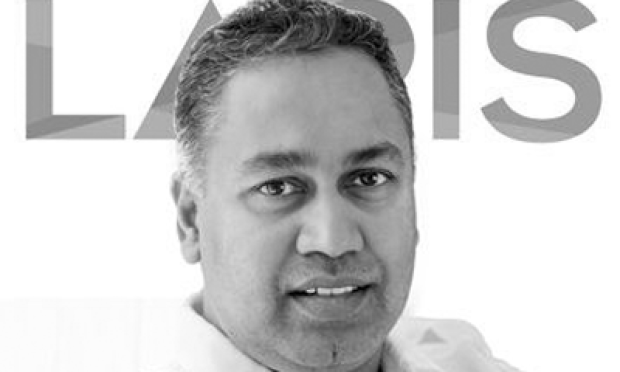 lapis-communications.com
lapis-communications.comFaheem Ahamed
The CEO of Lapis Communications has advised governments and chief executives on complex communications challenges -
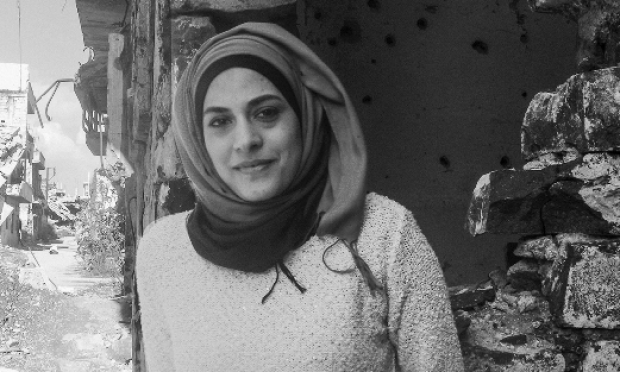 @marwa_alsabouni
@marwa_alsabouniMarwa Al-Sabouni
The Syrian architect is staying in Homs "because bad architecture helped Syria fall apart" -
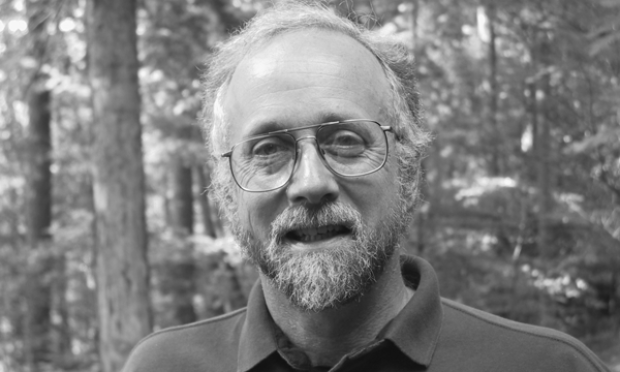 gatech.edu
gatech.eduRonald C. Arkin
Professor Arkin is Associate Dean for Research and Space Planning at the College of Computing, Georgia Tech -
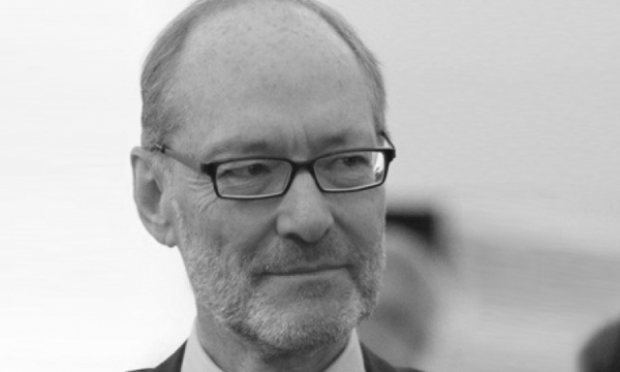 osce.org
osce.orgGünther Bächler
Ambassador Bächler is Special Representative of the OSCE Chairperson-in-Office for the Southern Caucasus -
 janinedigiovanni.com
janinedigiovanni.comJanine di Giovanni
The Middle East editor of Newsweek magazine is a war reporter -
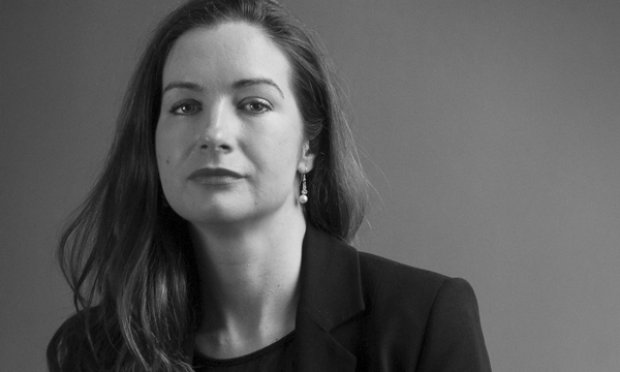 mary-fitzgerald.com
mary-fitzgerald.comMary Fitzgerald
The journalist specializes in the Euro-Mediterranean region with a particular focus on Libya -
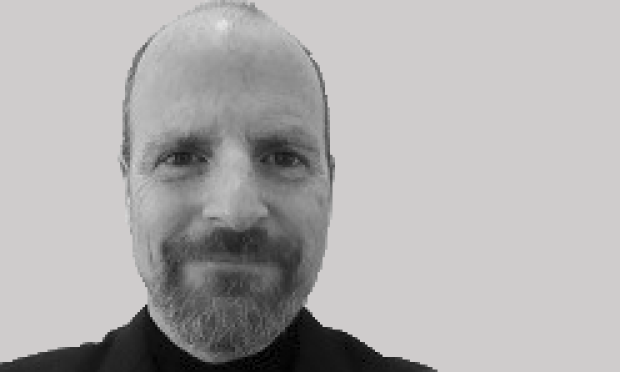 linkedin.com
linkedin.comPatrick Gavigan
The independent mediation consultant is currently Senior Advisor at the European Institute of Peace -
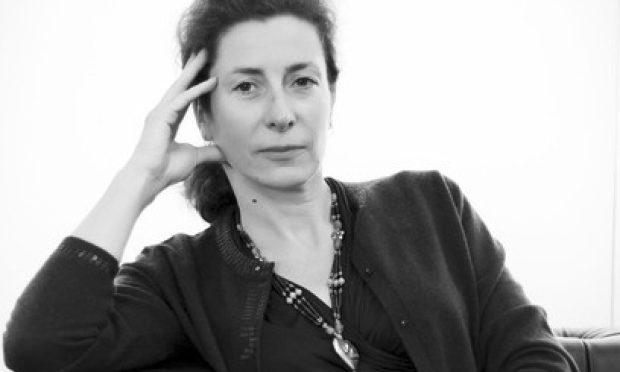 eda.admin.ch
eda.admin.chHeidi Grau
Ambassador Grau heads the Human Security Division of the FDFA -
eip.org
Martin Griffiths
The Director of the European Institute of Peace is an experienced international peace mediator -
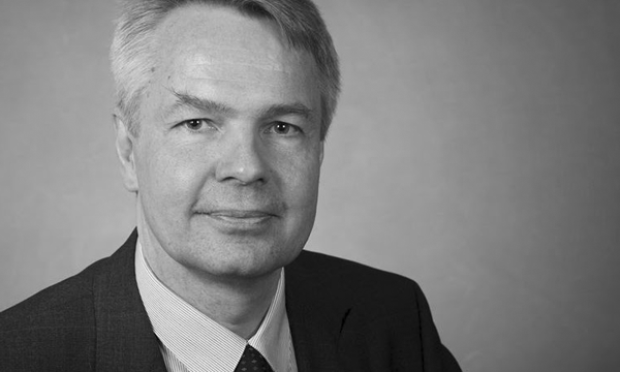 eip.org
eip.orgPekka Haavisto
The former Minister for international development of Finland is currently President of the European Institute of Peace -
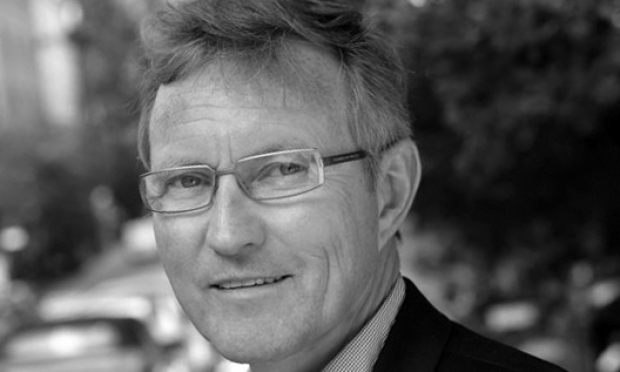 ikeafoundation.org
ikeafoundation.orgPer Heggenes
The CEO of the IKEA Foundation drives the Foundation’s funding and innovation strategies -
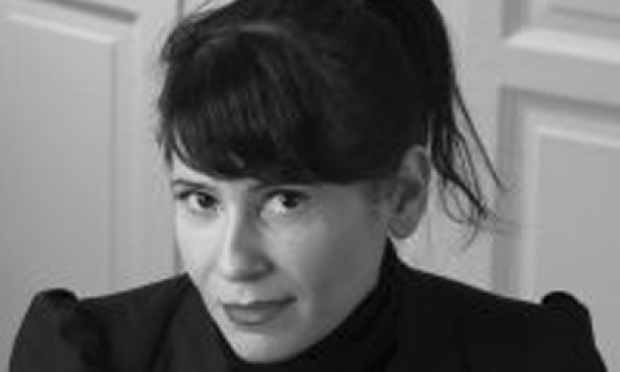 sibylink.com
sibylink.comRegina Joseph
As Founder of Sibylink she specializes in the nexus of strategic foresight analysis and information design -
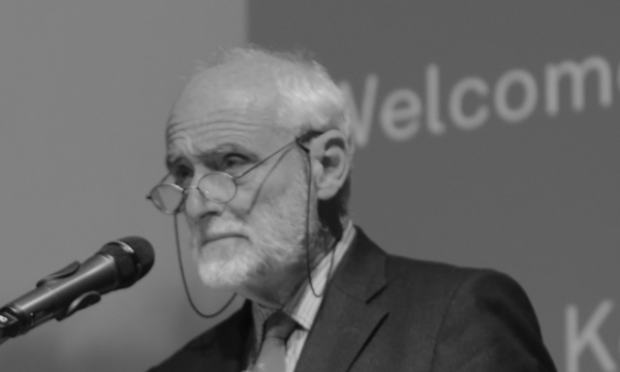 swisspeace.org
swisspeace.orgJakob Kellenberger
The former President of the ICRC is currently President of the Swiss Peace Foundation -
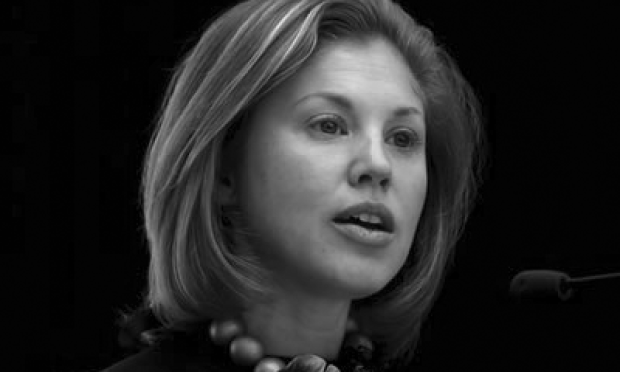 ebaymainstreet.com
ebaymainstreet.comHanne Melin Olbe
The Director Global Public Policy at eBay heads the Public Policy Lab for the EMEA region -
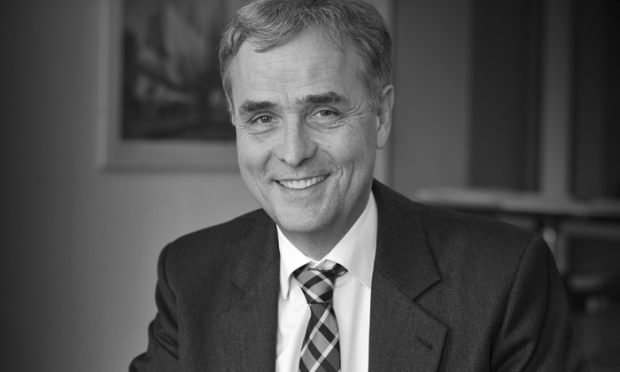 bs.ch
bs.chGuy Morin
As President he heads the Executive Council of the canton of Basel-Stadt -
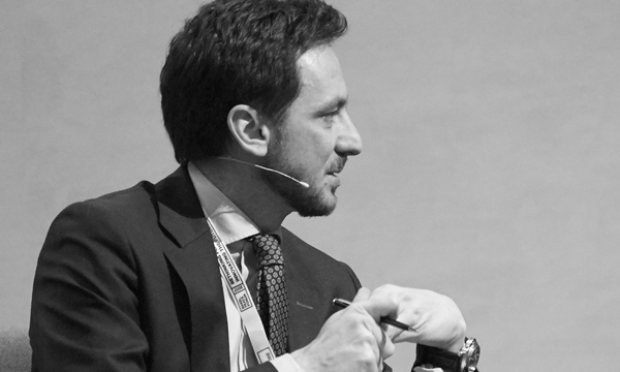 un.org
un.orgSalvatore Pedulla
At the Office of the UN Special Envoy for Syria Salvatore Pedulla serves as Senior Political Affairs Officer -
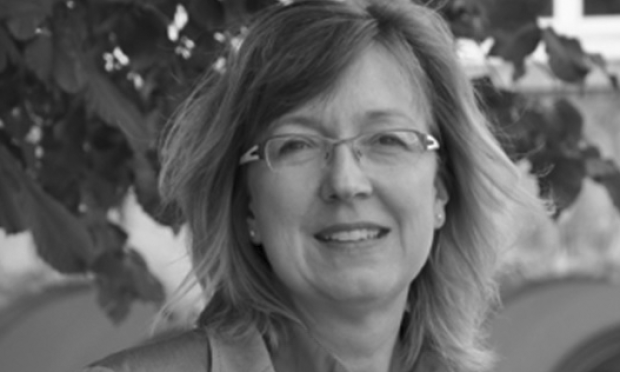 linkedin.com
linkedin.comJutta Reinhard-Rupp
At Merck she heads the Translational Innovation Platform Global Health -
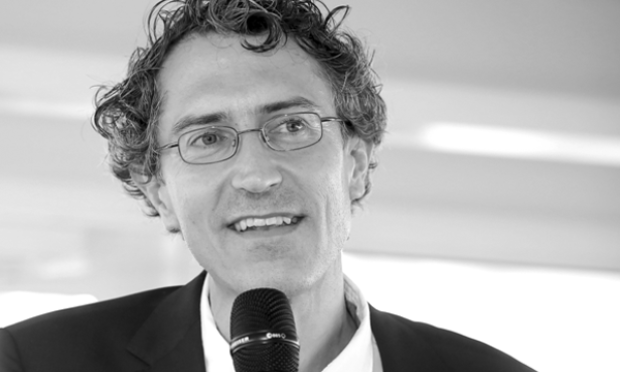 swisstph.ch
swisstph.chJürg Utzinger
Professor Utzinger is Director of the Swiss TPH in Basel and specializes in epidemiology
Workshops
The workshops at the Basel Peace Forum 2017 addressed the following themes:
1. Artificial intelligence – warfare – ethics
Speakers:
- Prof. Dr. Ronald C. Arkin, Director of the Mobile Robot Laboratory at the Georgia Institute of Technology, Atlanta
- Hanne Melin Olbe, Director of the Global Public Policy Lab at eBay Inc.
Moderated by:
- Dr. Ursula König, ximpulse
Humanity expects a lot from the development of new technologies in general and of artificial intelligence and virtual platforms more specifically: support for the eradication of diseases, poverty and hunger, for the ending of wars and for the growth of human knowledge, and support for inclusive economic and social opportunities, just to name a few. But at the same time, many fear a loss of control and unintended negative consequences. We would like to open the debate and not only look at how new technologies change warfare – something that is already widely discussed – but also to ask how it could potentially be used for short-term and long-term peacebuilding and conflict prevention.
2. Health & peace
Speakers:
- Dr. Jutta Reinhard-Rupp, Head of the Global Health Institute, Merck Serono
- Prof. Dr. Jürg Utzinger, Director of the Swiss Tropical and Public Health Institute
Moderated by:
- Dominique Reber, Partner at Hirzel.Neef.Schmid.Counselors
Health, war and peace are highly interlinked. Evidence suggests that strengthening the link between peacebuilding goals, institution building and the health sector is necessary because poor health is correlated with a higher risk for violent conflict and vice versa. In this workshop we discuss the following questions: How can the ability of the health sector to operate in war situations be strengthened? What is necessary in order to maintain global support for the health sector in such situations? Health services have a high potential to transcend human difference. How can this potential be better used to contribute to peace?
3. Role of the private sector: Risk Management & Analysis
Speakers:
- Dr. Philipp Aeby, CEO, RepRisk
- Regina Joseph, Founder of Sibylink
Moderated by:
- Danielle Lalive d’Epinay, lalive moderation
Companies, governments, think tanks, multilateral organizations and civil society undertake risk analysis when engaging in a challenging and dangerous context. The approaches and instruments for risk analysis vary considerably and highly depend on the mandate and the objectives that an entity has. In this workshop we discuss what we can learn from different risk analysis systems: How do they interact with and impact local contexts? How can the potential for companies to operate in conflict-affected situations be enhanced and what can they contribute to peace and social cohesion through smart risk management?
Congress Center Basel (January 16)
Messeplatz 21
4058 Basel
congress.ch
Public side events
The Role of Art in Peacebuilding
Art initiatives in the context of conflicts have received growing attention. artasfoundation, the Swiss Foundation for Art in Regions of Conflict, is one of only few organisations which specialized in art initiatives in its work in regions affected by violent conflicts. artasfoundation presents how it seeks to combine in its work in the South Caucasus skills from different fields such as artistic production, international cooperation, cultural management, and peacebuilding and how it collaborates with individual artists, civil society activists as well as non-governmental and governmental actors. With photo and video documentations of projects, the presentation shows examples of successful experiences as well as challenges and risks.
Venue & date:
Congress Center Basel, Room Samarkand
16 January, 17:30 – 19:30
Speakers:
Dr. Sabine Jenni, Dr. Marcel Bleuler, Fenja Läser, project coordinators at artasfoundation
More information: www.artasfoundation.ch
Contact: sabine.jenni@artasfoundation.ch
Nuclear weapons: Renewed global threat. Emerging solutions
With increasing East-West tension, the risk of a nuclear confrontation is on the rise again. Nuclear weapon states continue to modernize their nuclear arsenals. New policies of the in-coming US Government could increase the risks of armed conflict and nuclear war. Several new states may aim to also acquire nuclear weapons (horizontal proliferation). This new situation, the significance of UN initiatives and the concept of Nuclear Weapon Free Zones, in particular such a zone in Europe, will be discussed.
Venue & date:
Congress Center Basel, Room Osaka
16 January, 17:00 – 19:00
Speakers:
Prof. (em.) Andreas Nidecker (President of the Basel Peace Office), Arielle Denis (International Peace Bureau), Alyn Ware (Director of the Basel Peace Office)
More information: www.baselpeaceoffice.org
Information for participants
Accommodation
Please find below our hotel recommendations close to Congress Center.
For further accommodation options, please contact the Basel tourism office: www.basel.com
Transport
Travel to Basel
From EuroAirport Basel-Mulhouse-Freiburg, bus line number 50 will take you to the main station (Basel SBB) in 25 minutes. From Zurich Airport, there are regular train connections to Basel (Basel SBB) taking 1 hour and 10 minutes. For detailed information and railway timetables check SBB.ch.
Public Transport in Basel
Your hotel may offer a city ticket that you can use for trams and buses. If it does not, you can buy a ticket at any station or online. You can expect public transport to be on time in Basel. The station at Kunstmuseum Basel is called “Kunstmuseum”. The station at the Congress Center is called “Messeplatz”. For detailed information, online ticket purchases or timetables on trams and buses: SBB.ch.
Taxis in Basel
If you want to take a taxi, you can call "33er”, which is the biggest taxi company in Basel: +41 61 333 33 33. UBER is also available in Basel.
Further information
Visa
If you need a visa to enter Switzerland, please contact Luca Sigrist info@basel-peace.org as soon as possible. We will provide you with an invitation letter that you can present to a Swiss embassy or consulate abroad.
Insurance
If you do not have international travel insurance, please inform Luca Sigrist info@basel-peace.org as soon as possible.
Weather
For information on the weather in Switzerland, we advise you to check www.meteoswiss.admin.ch. In general you can expect cold weather in January and even snow.
Currency
The currency in Switzerland is Swiss Francs. You can withdraw Swiss Francs at ATMS at the airports in Basel or Zurich, at railway stations or in the city of Basel. You will also find counters to change your currency at the airport as well as at the railway station. Credit and debit cards are accepted at most places. Some places accept Euros (only bills).
Electricity outlets
Switzerland has its own standard of electrical plugs, but they are compatible with two-pin Europlugs. However, they are not compatible with the round "schuko" type.
Information for media
Media release of the 16.01.17: Basel Peace Forum calls for responsive and responsible leadership for peace
Medienmitteilung vom 16.01.17: Basel Peace Forum fordert anpassungsfähige und verantwortungsvolle Führung für Frieden
Communiqué aux médias du 16.01.17: Le Basel Peace Forum appelle à un leadership réceptif et responsable pour la paix
Media release of the 21.12.16: Basel Peace Forum is rethinking peace
Medienmitteilung vom 21.12.16: Basel Peace Forum denkt Frieden neu
Communiqué aux médias du 21.12.16: le Basel Peace Forum repense la paix
On 16 January from 1.10 pm to 1.50 pm a media event will take place at the MCH Lounge at the Congress Center Basel. The media event will be held in English. Please register by 11 January by sending an e-mail to isabel.prinzing@basel-peace.org.
The media event will be opened by Laurent Goetschel, Director of swisspeace and Professor at the University of Basel. The following speakers will give their inputs on innovations for peacebuilding:
- Marwa Al-Sabouni, Syrian architect and book author living in Homs
- Ronald C. Arkin, Professor at the School of Interactive Computing at the Georgia Institute of Technology in Atlanta
- Pekka Haavisto, President of the European Institute of Peace
- Dr. Jutta Reinhard-Rupp, Head of the Global Health Institute at Merck
For any media inquiry please contact us:
Isabel Prinzing
isabel.prinzing@basel-peace.org
+41 31 330 12 07

